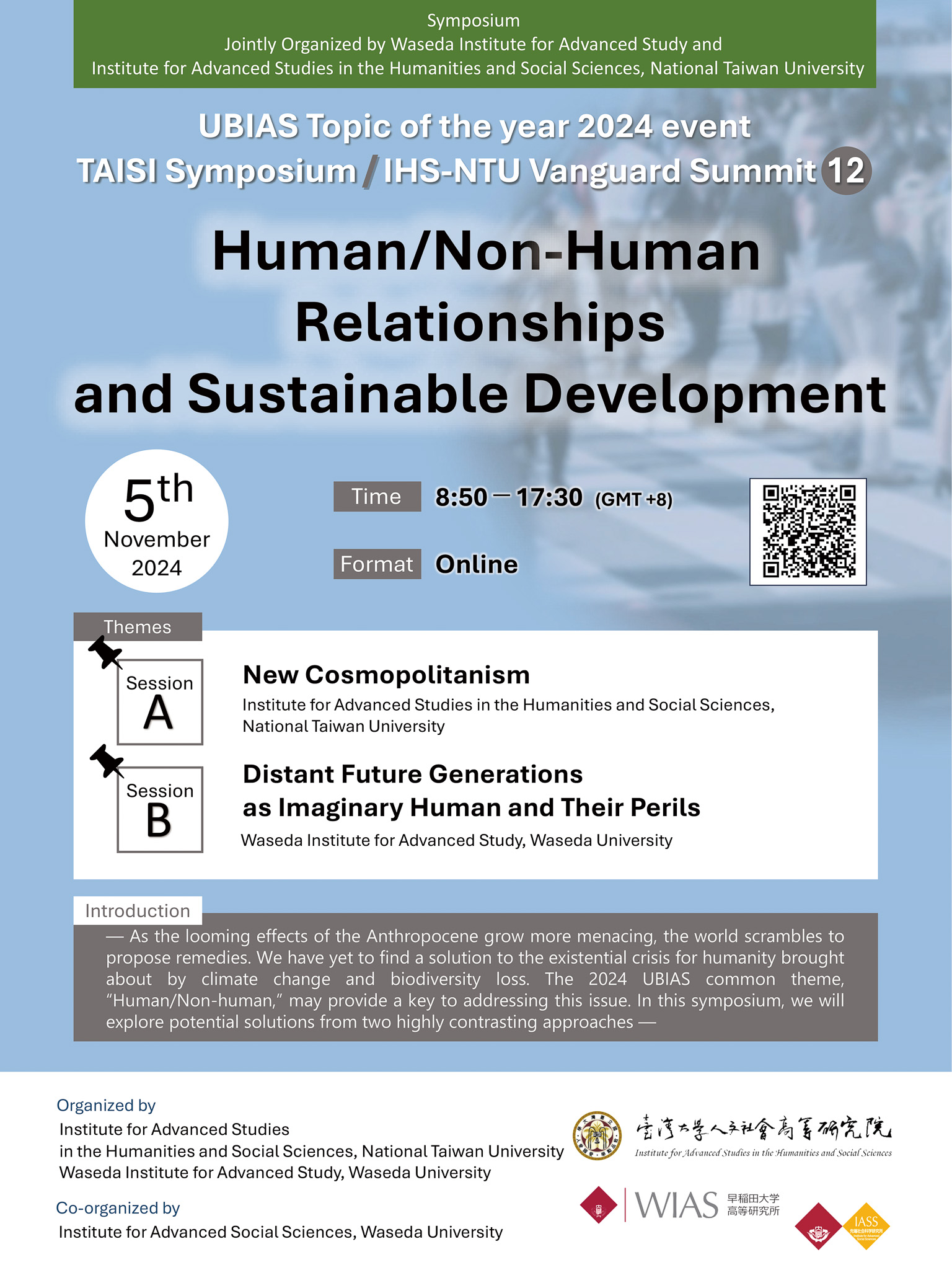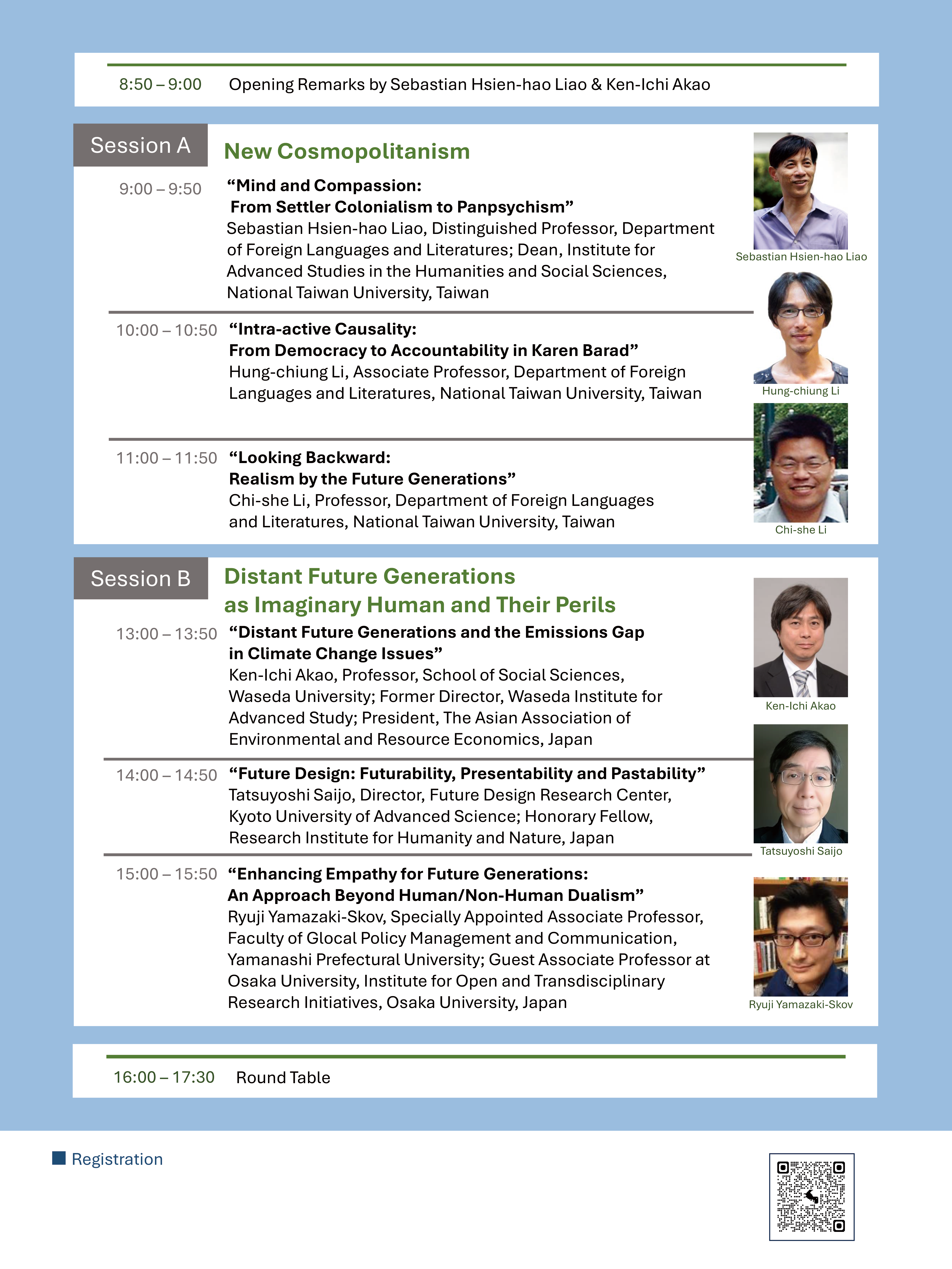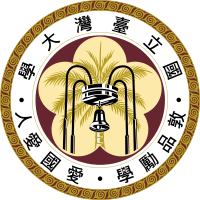【Vanguard Summit 12】Human/Non-human Relationships and Sustainable Development


Date: Tuesday, November 5, 2024
Time: 08-50 – 17:30 (GMT+08)
Format: ZOOM webinar
Link: https://list-waseda-jp.zoom.us/webinar/register/WN_xN24KDXnRFuQd7gy6DGC8A
Human/Non-human Relationships and Sustainable Development
Abstract:
As the looming effects of the Anthropocene grow more menacing, the world scrambles to propose remedies to the existential crisis for humanity brought about by climate change and biodiversity loss. The 2024 UBIAS common theme, "Human/Non-human," may provide a key to addressing this issue. In this symposium, we will explore potential solutions from two apparently contrasting but in fact mutually complementary approaches.
In the first part, as a radical approach to the issue, we will delve into its roots: the anthropocentrism deeply embedded in Western cultures, where the idea of the Great Chain of Being has changed little except replacing God with Man at the top of the hierarchy. The fact that animal rights advocates prioritize animals that exhibit empathy toward humans, for instance, lends evidence to this unyielding anthropocentrism. Consequently, what we are in dire need of is a "flat ontology" that does not forsake human accountability—one that reorients the human-nonhuman relationship not by treating the nonhuman as merely necessary for human survival, but by recognizing that all beings have equal rights to exist on this planet. A key issue in this reorientation involves the relative value of the myriad entities, a subject that is critical to the extent to which de-anthropocentrism can be pursued and has sparked heated debates. We believe that further academic discussions on the human-nonhuman relationship will help clarify these issues and contribute to the development of more concrete strategies to combat the Anthropocene.
In the second part, the issue will be addressed from a more piecemeal approach. While framing the problem as a crisis of human survival have obviously been prompted by anthropocentric concerns, the slowness in enhancing sustainability indicates that future generations are not being treated equally with the current generation. If they were, we would be implementing stronger measures for climate change and biodiversity conservation. In other words, future generations exist on the boundary between human and non-human. While anthropocentrism suggests we treat them as human, they are not being afforded the same rights as present-day humans.
The second part of the symposium will begin by highlighting the gap between the "should be" and the "is" in this context, using climate change as a case study. Following this, two practical solutions to treating future generations as equals will be proposed. The first solution introduces the idea of "future design," a concept that encourages thinking from the future back to the present, rather than from the present forward to the future. The second solution will present practical attempts to enhance our empathy for future generations.
For more details, please see: https://drive.google.com/file/d/10FArfZmdO1jf1BlyImewUzKJGuFdKh9T/view?usp=sharing
Speakers:
Sebastian Hsien-hao Liao(Distinguished professor, Department of Foreign Languages and Literatures; Dean, Institute for Advanced Studies in the Humanities and the Social Sciences, National Taiwan University, Taiwan)
Hung-chiung Li (Associate Professor, Department of Foreign Languages and Literatures, National Taiwan University, Taiwan)
Chishe Li (Professor, Department of Foreign Languages and Literatures, National Taiwan University, Taiwan)
Ken-Ichi Akao (Professor, School of Social Sciences, Waseda University, Japan)
Tatsuyoshi Saijo (Director, Future Design Research Center, Kyoto University of Advanced Science; Emeritus Professor, Research Institute for Humanity and Nature, Japan)
Ryuji Yamazaki-Skov (Specially Appointed Associate Professor, Faculty of Glocal Policy Management and Communication, Yamanashi Prefectural University; Guest Associate Professor at Osaka University, Institute for Open and Transdisciplinary Research Initiatives, Osaka University, Japan)
Agenda:
Organized by:
Institute for Advanced Studies in the Humanities and Social Sciences, National Taiwan University
Waseda Institute for Advanced Study, Waseda University
Co-organized by:
Institute for Advanced Social Sciences, Waseda University



